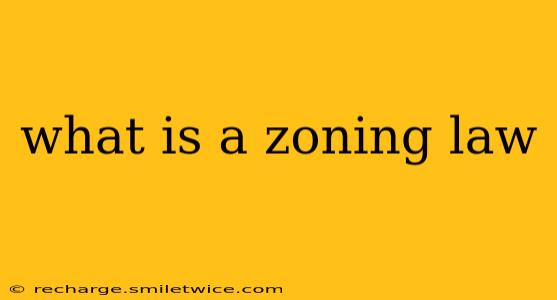Zoning laws are local government regulations that control how land within a municipality can be used. They dictate what types of buildings can be constructed, their size, placement, and even the activities permitted on a property. Essentially, zoning laws are a crucial tool for managing urban development, ensuring a balance between community needs and individual property rights. Think of them as a blueprint for how a city or town wants to grow and evolve.
This guide will delve into the specifics of zoning laws, answering common questions and providing a comprehensive understanding of this vital aspect of local governance.
Why Do We Need Zoning Laws?
Zoning laws address several critical aspects of community development:
-
Public Health and Safety: By controlling building density and usage, zoning minimizes hazards like overcrowding, inadequate sanitation, and traffic congestion. It ensures proper setbacks from roads and other infrastructure, improving safety and access.
-
Property Value Protection: Zoning laws help maintain property values by preventing incompatible land uses from negatively impacting neighboring properties. For instance, zoning prevents a noisy factory from being built next to a residential area.
-
Environmental Protection: Zoning can help protect natural resources and sensitive ecosystems by restricting development in environmentally vulnerable areas. This includes preserving green spaces, wetlands, and other ecologically important lands.
-
Community Character Preservation: Zoning allows municipalities to maintain or enhance the character of their neighborhoods. This might involve preserving historic districts, controlling building heights to maintain views, or ensuring architectural consistency.
-
Managed Growth: Zoning plays a significant role in managing the pace and pattern of urban growth, preventing sprawl and promoting more sustainable development.
What Does a Zoning Law Typically Cover?
Zoning laws are multifaceted and cover a wide range of regulations. Key aspects include:
-
Land Use Categories: These define how land can be used, typically including residential, commercial, industrial, agricultural, and mixed-use designations. Each category has specific restrictions.
-
Building Height and Size: Zoning often limits the maximum height and footprint of buildings to prevent overcrowding and maintain aesthetic consistency.
-
Setbacks: These regulations dictate the minimum distance a building must be from property lines, roads, and other features.
-
Density: Zoning limits the number of dwelling units or buildings allowed per unit of land, impacting population density.
-
Parking Requirements: Zoning often mandates a minimum number of parking spaces for specific land uses, affecting traffic and parking availability.
-
Sign Regulations: Restrictions on sign size, placement, and design are common zoning provisions, aiming for visual appeal and safety.
-
Lot Size: Zoning often specifies minimum lot sizes, affecting the number of homes that can be built in a given area.
What is a Zoning Map?
A zoning map is a visual representation of the zoning regulations in a municipality. It displays the boundaries of different zoning districts and the corresponding land use designations. This map is a crucial tool for understanding how a particular property is zoned and what development options are available.
How Can I Find My Zoning Information?
To find zoning information for a specific property, you generally need to contact your local municipality's planning or zoning department. Many municipalities make their zoning maps and ordinances available online.
What Happens if I Violate Zoning Laws?
Violating zoning laws can result in penalties, such as fines, stop-work orders, and even legal action to force compliance. It's crucial to understand and adhere to all applicable zoning regulations before undertaking any development project.
Can Zoning Laws Be Changed?
Yes, zoning laws can be amended, but the process typically involves public hearings, reviews, and approvals by local governing bodies. This ensures that changes are carefully considered and reflect the needs and desires of the community.
Understanding zoning laws is essential for anyone involved in land development, property ownership, or community planning. By understanding these regulations, you can ensure responsible and sustainable growth within your community.
